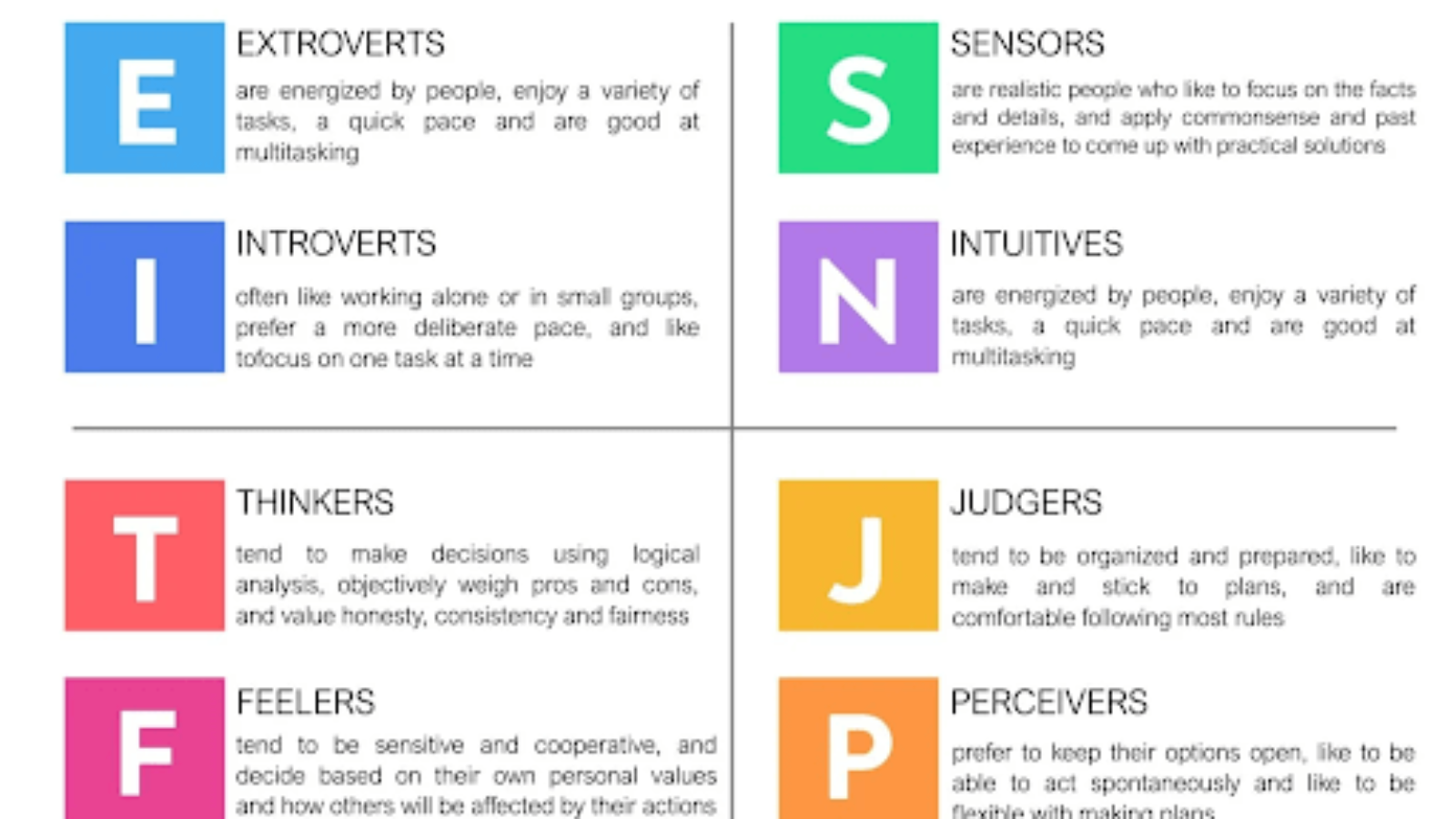
From the Myers-Briggs Type Indicator test to those Buzzfeed questionnaires that tell you what kind of bread you are, personality tests have become an increasingly popular entertaining activity. People take these tests for various reasons, whether to get to know themselves better or to figure out what kind of person is their ‘perfect match.’ However, the accuracy and truth of personality tests are often subject to debate, mainly due to their very foundation. Despite this, the Myers-Briggs Type Indicator (MBTI) is popular among individuals and corporations.
The MBTI test sorts people into 1 of 16 personalities based on four cognitive foundations: Extraversion/Introversion, Sensing/Intuition, Thinking/Feeling, and Judging/Perceiving. The name of each personality type is an abbreviation of the four starting letters of the preferred cognitive function, e.g., ENFP.
In the 1920s, Katharine Briggs and Isabel Briggs-Myers, an American mother-daughter duo with no formal training in psychology, developed the personality test. However, the true origins of the theory behind the acclaimed test is a book written by Swiss psychiatrist Carl Jung, namely Psychological Types. Jung’s work was entirely theoretical and based on personal experience.
“This was before psychology was an empirical science,” says Adam Grant, a psychologist at the University of Pennsylvania. “The characteristics measured by the test have almost no predictive power on how happy you’ll be in a situation, how you’ll perform at your job, or how happy you’ll be in your marriage.”
The basis of many personality tests is inherently theoretical, not through controlled experiments or data. The Myers-Briggs Type Indicator test is no exception to this common notion. Nevertheless, people are still drawn to it. It is embedded in human nature to be curious, and this curiosity drives our pursuit of knowledge. The same applies to understanding ourselves, and who we are in relation to the many individuals in this world.
That’s why we love taking personality tests.
We are enticed by the prospect of discovering something new about ourselves, whether our strengths and weaknesses or what kind of parents we will become. The kind of job that suits us best. The kind of friends that suit us best. The kind of partner that suits us best. Personality tests can also help us understand those around us better; they reinstall the connected nature of humanity.
But maybe, just maybe, there lies another reason beyond wanting to learn something new: the yearning to feel less alone. Every person on this planet leads their own life; with their own family, friends, hopes, and dreams. It’s hard not to feel lonely. Through media-like personality test results, people are reminded that others think like them. In a world so vast yet so small, there is comfort in knowing that people like you exist, even when the science behind it remains unproven.
SOURCES:
https://www.simplypsychology.org/the-myers-briggs-type-indicator.html
https://www.vox.com/2014/7/15/5881947/myers-briggs-personality-test-meaningless
https://careerassessmentsite.com/why-is-the-mbti-assessment-popular/#:~:text=People%20want%20to%20understand%20themselves.&text=Human%20identity%20and%20personality%20are,making%20sense%20of%20this%20complexity.


I was excited to find this site. I wanted to thank you for ones time for this particularly wonderful read!! I definitely enjoyed every little bit of it and i also have you book marked to look at new stuff on your site.